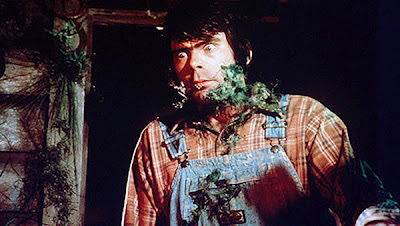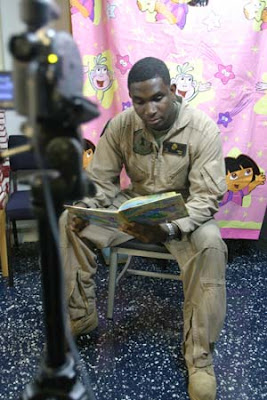Dear Dwight Allen:
Thank you for letting me know about
your Stephen King problem (henceforth, SKP). Many people let these problems go, thinking they're not particularly important or, ultimately, relevant to anyone other than themselves, but the science shows that letting these problems linger encourages them to fester, and once they fester they can then lead to all sorts of complications and an endless array of other problems (most commonly, J.K. Rowling problems and J.R.R. Tolkien problems, which themselves can lead to entire textbooks of other problems.) Such suffering becomes an infinite sprawl of frustration, guilt, pain, and, often, anti-social behavior and anal warts.
To assess your treatment needs, let's analyze some of your history and symptoms.
Failure to quarantine. It is clear from your history that you remained healthy after occasional contacts with contagions (most notably in New York City [notable site of contagions of all sorts] in the company of a publishing employee [notable purveyors of marketing-induced illnesses] whilst "possibly" drinking "too much bad beer" [do you think there is such a thing as "enough" bad beer?]. You note that your infected friend had alleviated or at least hidden some of his symptoms with regular infusions of Pynchon, Nabokov, and Gass, but as you now must know, these are not effective medicines against SKP any more than a breath of filtered air is a remedy for the carcinogenic effects of smoking a cigarette). You health after said contact was, though (as is obvious now) relative, because had you truly been healthy, you would not now have a problem. I hope this will be a lesson to you in the future.
It is absolutely essential to quarantine bad influences at the moment you begin to suspect their healthfulness. It is always better to be safe than problematized. First, the contagion infiltrated your brain. Then, like an insect laying eggs beneath your skin, it incubated, eventually bursting through to present as full SKP.
You identify your own failure clearly, even if you don't acknowledge it as such: "During my college and graduate school years and then in my post-graduate working life, I’d read, in addition to much commercially successful literary fiction, a fair amount of genre fiction." It is good that you have separated the healthy ("literary fiction") from the somewhat contaminated ("commercially successful literary fiction") and from the pure contagion ("genre fiction"). But exposing yourself to the contagion in any form is, for roughly 75% of the population, eventually fatal. To be honest, your middle category is an illusion, like being only somewhat pregnant. There really is no middle ground. (As we will discuss later, it is very important to maintain only 2 categories for any sort of healthy judgment.)
Notice how many times you return to the contagion once you have encountered it fully. First,
Christine, then
Pet Sematary, then (saying, "I thought I’d try another King novel, a later one, to see if his writing had changed over the years")
The Girl Who Loved Tom Gordon and
11/22/63. You know, of course, that such exposure is dangerous, and you're now fully aware of the effect, but it's important to be absolutely honest about the steps along the way. Remember, too, that contagion and addiction often present similar symptomatic profiles.
A side note: According to your account, one contagion you did manage to avoid was hipness. You write: "Strangely enough, I’d developed my taste for crime fi
The senses are a vital source of knowledge about the objects and events in the world, as well as for insights into our private sensations and feelings. Below is an excerpt from Art and the Senses, edited by Francesca Bacci and David Melcher, in which Charles Spence, Maya U. Shankar, and Heston Blumenthal look at the ways in which environmental sounds can affect the perceived flavour of food.

Writers need to develop deep imagery. It doesn't matter if it's real story or a fictional one; it's the authors' duty to induce reactions from the reader.
Use Imagination—Take a deep breath and read the following paragraph. See if your mind reacts to the stimulus.
It's a hot summer day. You pull a lemon from the fridge. You're holding it in your hand. Look at the outside; run your thumb over it's yellow waxy skin, notice the tiny green bits. Feel how cold it is in your hand. Raise it to your nose and smell it. Mmm. Press it gently and notice the weight of the lemon in the palm of your hand. Pick up a knife and cut it in half. Hear the juices, feel the little spray and notice the smell as it increases. Bite deeply into the lemon and allow the juice to swirl around in your mouth. Did your mouth react?
2 Comments on Use Imagination and Trigger Emotions, last added: 5/2/2010

Since there are so many kinds of snow it is always great to have someone on hand for quality control.
I must admit some surprise that the best book I've read about judgement, taste, and aesthetics is a book about Céline Dion. Carl Wilson's Let's Talk About Love: A Journey to the End of Taste is not only thoughtful and well-informed, it is also compelling in every sense of the word. (It's part of the ever-surprising and wonderfully odd 33 1/3 series from Continuum Books.)
is not only thoughtful and well-informed, it is also compelling in every sense of the word. (It's part of the ever-surprising and wonderfully odd 33 1/3 series from Continuum Books.)
I don't know where I first heard about Wilson's book -- probably via Bookforum -- but it's gotten plenty of press, including a mention by James Franco at the Oscars and an interview of Wilson by Stephen Colbert. The concept of the book is seductive: Wilson, a Canadian music critic and avowed Céline-hater, spends a year trying to figure out why she is so popular and what his hatred of her says about himself. I kept away from the book for a little while because I thought it couldn't possibly live up to its premise, and that in all likelihood it was more stunt than analysis. Nonetheless, the premise kept attracting me, because I am fascinated by the concept of taste and I, too, find Dion's music to be the sonic equivalent of a Thomas Kinkade painting.
What makes Wilson's approach so effective and insightful is that it avoids the fanboy defensiveness marring everything from internet discussions to scholarly studies such as Peter Swirski's From Lowbrow to Nobrow . Wilson isn't grinding axes or settling scores; he's more interested in exploration than proclamation, more inclined toward maps than manifestos. The result is one of the few books I know that is as likely to expand its readers' view of the world as it is to provide the choir with an appealing sermon.
. Wilson isn't grinding axes or settling scores; he's more interested in exploration than proclamation, more inclined toward maps than manifestos. The result is one of the few books I know that is as likely to expand its readers' view of the world as it is to provide the choir with an appealing sermon.
By focusing on Céline Dion, Wilson is able to discuss a wide range of topics: the details of Dion's career, of course, but also the history of popular music, the globalization of certain styles and tastes, the power of local cultures, the role of class and aspiration in forming and policing personal taste, the demonization of sentimentality and excess, the promotion of irony and transgression, etc. Wilson also provides a good, basic overview of histories and traditions of aesthetic philosophy, showing that even the most eminent thinkers and critics tend to do little more than construct elaborate sleight-of-hand routines. Because his goal is not to debunk so much as it is to explore, Wilson is able to use the best of what he encounters -- most fruitfully in his clear-eyed application of ideas from Pierre Bourdieu's
3 Comments on Let's Talk About Love: A Journey to the End of Taste by Carl Wilson, last added: 12/9/2009








I was looking through some cheap Taschen art books (regrettably small) the other day at some Turner. As I examined the pictures, when I looked at the details, they were muddy, slapdash, meaningless, dull. Very bad style.
Now I'm going to ponder all the earned, unhappy endings, and feel well satisfied with the world.
Then I'll ponder all the ways people could earn their happy endings and sharpen my judgmentalism to a fine, fine point.
You know, I agree with everything Allen says about King's writing, but that is still a monumentally stupid essay. Why *did* Allen's editor friend fallen for, if not Christine, some other not very good King novel? Why *are* King's readers so tolerant of the bloat in King's novels? Why *will* they let King go on for a couple hundred pages about some matter that has no vital connection to the subject of the book? Why *do* some people in the literary business regard King as a major contributor to American literary culture? After Bolaño and Johnson and Foster Wallace and Pynchon why *would* you return to Stephen King? Why *can't* Allen be arsed to actually try to answer any of these questions, instead of just repeating a long list of King's well-known faults as if they were new discoveries?
I can't speak for Dr. East, David, but yes, I agree with you generally — I think I like King probably more than you do, but a lot of that goes back to childhood: he and Isaac Asimov made me the reader I am. I haven't read all that many of the books since Misery (I enjoyed Under the Dome), but despite the fact that he generally writes horror fiction, for me it's comfort reading. He's been part of my reading life for so long that it feels like going home.
That said, I think explorations of all your questions would make for a fascinating essay. There are interesting implications and mysteries at the heart of both the phenomenon that is Stephen King and the texts that carry his byline. Actually, it would be perfect for something like a Locus Roundtable, if they got a diverse enough group of people, not just defensive fans (or offensive fans...)
They need to get a diverse group of people and make them all read "Let's Talk About Love" before they open their mouths. :)